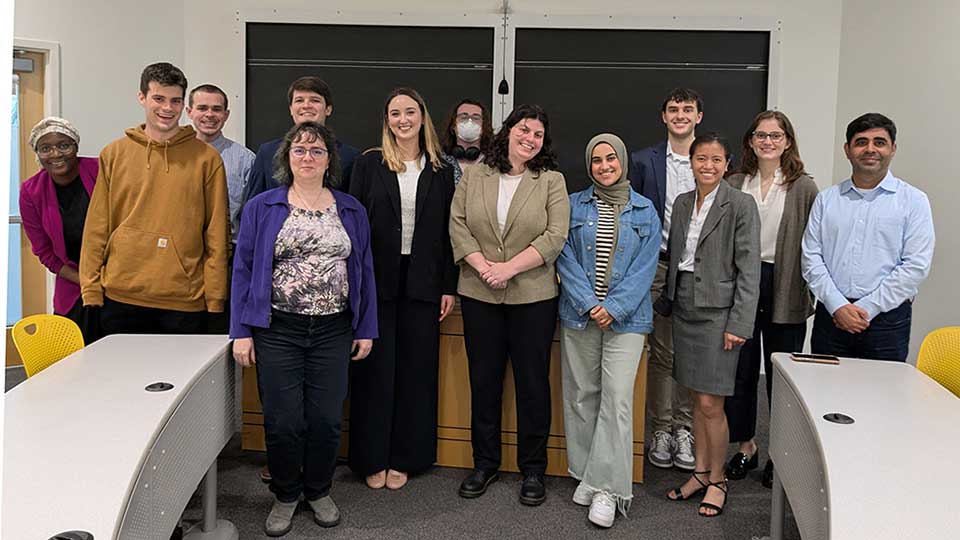
On May 5th and 6th, second-year students in the Master of Public Policy (MPP) program presented their capstones at a hybrid event that took place in the Glynn Amphitheater and via Zoom. This year, students focused on a variety of topics, including disability rights, equity in education, environmental policy solutions, and more.
The MPP capstone is a one-semester class that begins with students choosing a topic pertinent to their concentration, allowing them to bring background knowledge to the policy area and any relevant literature. Students solidify their topics and projects with the support of their capstone professor. Over a 13-week period that mirrors the timing of preparing a real-world policy brief, students build their projects, conducting significant research and literature reviews to diagnose the policy problem and weigh the pros and cons of several potential policy solutions.
The capstone has a strong focus on concise, cogent writing and verbal communication, and culminates in a 25-30 page policy brief and oral presentation in which students highlight the policy analysis skills they have gained during their first 3 semesters of MPP coursework.
“I am inspired by the commitment to justice and democracy embedded in the policy recommendations our MPP students produced through their Capstones,” said Alexandra Pineros-Shields, PhD'07, director of the MPP program. “Their work demonstrated an exceptional level of understanding and expertise in advancing a civil society where everyone can flourish.”
Robert Kuttner, Meyer and Ida Kirstein Professor in Social Planning and Administration at Heller, added, “The capstone students put into practice the credo of knowledge advancing social justice. They did Brandeis and the Heller School proud.”
13 students presented their capstones this year:
- Paulina Campos: “The Impact of Automated Management on Job Quality in the U.S.: Policy Approaches to Protect Workers”
- Patrick Collins: “Down-to-Earth Heating and Cooling: Expanding Geothermal Systems in Greater Boston”
- Jeremy Evans: “Disabled Lives Matter: an Exploration of Ableism in Policing”
- Jenna Flanagan: “Scaling up Thermal Networks to Replace Natural Gas in Massachusetts”
- Jordyn Green: “Creating Universal Access to High-Quality Preschool in Massachusetts”
- Paige Hemingson: “Green Justice in the City: Policy Strategies for Equitable Urban Growth in Boston”
- Lal Kumar: “Child Care Policy and Implementation Challenges for Single Working Parents in Massachusetts”
- Sam Larue: “U.S. Policy Reforms Addressing Embedded Bias in In-Home Care Access for Disabled Immigrants”
- Adam Martin: “Education for All: Ensuring Special Education and Accountability in Private and Charter Schools”
- Afnan Nehela: “Alleviating the Harms of Solitary Confinement: Incremental Policy Solutions for Massachusetts Prisons”
- Josh Newhall: “Provisions Against Plastic Prevalence: Policy Solutions to Resolve the U.S. Plastic Waste Crisis”
- Ela Petit-Frere: “Limited English Proficiency: Impact on the Haitian Community's Economic Mobility”
- Jia “Maggie” Shealy: “The Benefits and Challenges of Community Hub Schools in Boston, Massachusetts”
